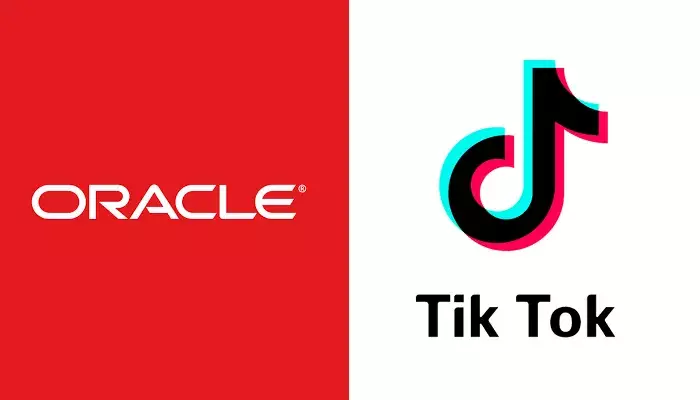The TikTok saga in the United States feels like a never-ending roller coaster, full of twists and turns that leave both users and investors on edge. As a Chinese-owned app garnering immense popularity in the U.S., TikTok has found itself embroiled in political entanglements and concerns about data privacy and national security. Recent reports suggest that Oracle has emerged as the frontrunner in a partnership deal that could help keep TikTok operational in America—a development that, while not entirely surprising, carries significant implications for the platform and its millions of users.
In an age where digital sovereignty has become paramount, the narrative surrounding TikTok reframes itself daily, driven by the competing interests of national security and the unyielding push for technological innovation. The stakes could not be higher, and the choices made in the coming weeks will ripple through the tech landscape, impacting global digital ecosystems.
Oracle’s Strategic Advantage
Oracle’s rise as the favored partner makes sense when considering its historical ties with TikTok and its alignment with U.S. regulatory demands. According to insiders and industry analysts, this partnership could be the answer to the divisive legislation requiring TikTok’s U.S. operations to be either sold off or shuttered altogether. The Information recently reported that Oracle is poised to play a central role in satisfying the regulatory framework initiated under the Trump administration, a regulation designed to restrict Chinese influence over U.S. data.
What’s more, Oracle has already engaged with TikTok in collaborative projects, such as Project Texas, which focuses on U.S. data separation and algorithmic oversight. These previous interactions illustrate that Oracle is not merely a recent favorite but a strategic choice steeped in a foundation of mutual cooperation. This connection to TikTok’s inner workings could facilitate a smoother transition than a new entrant into the scene.
Political Connections and Implications
The intertwining of business and politics complicates the TikTok narrative further. Oracle’s CEO, Larry Ellison, enjoys a friendly rapport with Donald Trump, a detail that weighs heavily on the potential partnership narrative. The relationship raises questions about favoritism and the influence of personal ties in business decisions that affect millions. In an environment where politics often dictates tech policy, Ellison’s presence in recent White House events only adds layers to the complexities of this impending partnership.
This scenario poses an impactful question: does the path laid down by political favor truly serve the interests of American users, or does it mirror an all-too-familiar cycle in which profit and geopolitics collide? As the deadline for a potential deal inches closer, the intricate dance of negotiation continues, both within the boardrooms and on social media platforms.
The Chinese Standoff
However, the road to a potential partnership is not without roadblocks. The Chinese government’s firm stance against a blanket sell-off of TikTok has created an intricate dilemma. Chinese officials assert that the algorithm and the structural elements that define TikTok will remain off-limits to any U.S. partner. This raises essential concerns: How can a partnership function effectively while adhering to the demands posed by Chinese authorities? Will this continue to be a leverage point for the Chinese government in negotiating tech regulations with the West?
Amidst the backdrop of fostering innovation, the realities of international relations pose challenges that could distort the perception of privacy in the digital age. If Oracle and the Trump administration can navigate these challenges, the implications for the future of technological partnerships between the U.S. and China could be significant—potentially setting precedents for future negotiations.
The Stakes for American Users
As the clock ticks down to the anticipated announcement regarding TikTok’s U.S. operations, American users remain in a precarious position—caught in the crosshairs of geopolitical maneuvering. The outcome of this deal will dictate not only the app’s availability but also how the privacy and data of millions are managed moving forward.
Consumer trust in digital platforms hinges upon transparent data management and ethical practices, both of which have been compromised by incessant political posturing. The precarious nature of TikTok’s future serves as a poignant reminder of the growing importance of understanding data sovereignty and privacy within the fabric of an increasingly interconnected world. If Oracle can step in as a stabilizing influence, it will not just redefine TikTok’s footprint; it could also reshape the digital landscape for years to come.
As this saga unfolds, all eyes are on the potential alliance that promises to empower TikTok while navigating the murky waters of international relations. The challenge remains: can Oracle craft a deal that allows TikTok to thrive without bowing to external pressures? The answer is as much about strategy as it is about principle in a world where the future of technology hangs in delicate balance.

